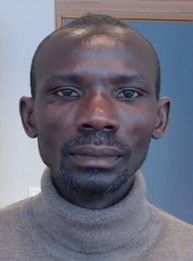Emmanuel Viga
Uganda, Ph.D Candidate, Department of Geography, Faculty of Social and Educational Services, Norwegian University of Science and Technology (NTNU), Trondheim, Norway 2023
The Role of Refugee Peace Initiatives and Everyday Assistance(s) as Tools for Harmonizing Land Conflicts Between Refugees and Hosts in Protracted Crisis

Project Summary
Refugees contribute immensely to peacebuilding outside their country. In policy debates, refugees are often approached as vulnerable and lacking agency and therefore refugees are often considered passive recipients of peace initiatives and programmes. This research engages beyond this narrative by exploring how refugees engage in peacebuilding. Qualitative methods with narratives as major data collection tool will be employed to explore land resource access conflicts. The research will draw on activities of peace and conflict resolution organisation (PACRO) and everyday forms of assistance(s)/aid as mechanisms and tools available to refugee to engage in peacebuilding. The objectives of the research are threefold: to map out common sources of land conflicts among refugees and their hosts; examine the role of peace and conflict resolution organisations in harmonising land conflicts among refugees and hosts and finally the research will examine how everyday practices of assistance(s)/aid among and between refugees and hosts ameliorate land conflicts. Through these discussions, the research challenges the commonly held narrative of refugees as passive recipients of peace initiatives, but rather argues for an engagement with refugees as active agents in peacebuilding. The context of this study will be the Bidibidi refugee settlement in the Yumbe district of Uganda.
Bio
Emmanuel Viga is a PhD candidate at the Norwegian University of Science and Technology (NTNU). He is currently writing a dissertation on civic humanitarianism and sociocultural aid practices amongst South Sudanese refugees in Uganda. As someone who spent his early years of childhood in a refugee camp in South Sudan, he is deeply invested in the plights of refugees and their struggles to attain a meaningful living. Prior to his PhD, he worked with Internally Displaced Persons in Northern Uganda and served as a consultant for UNDP on Sexual and Gender Based Violence response and prevention mechanisms in the same region. His current project with the IPRA Foundation continues to extend this career path and aspiration to contribute to the wellbeing of refugees and internally displaced persons.
